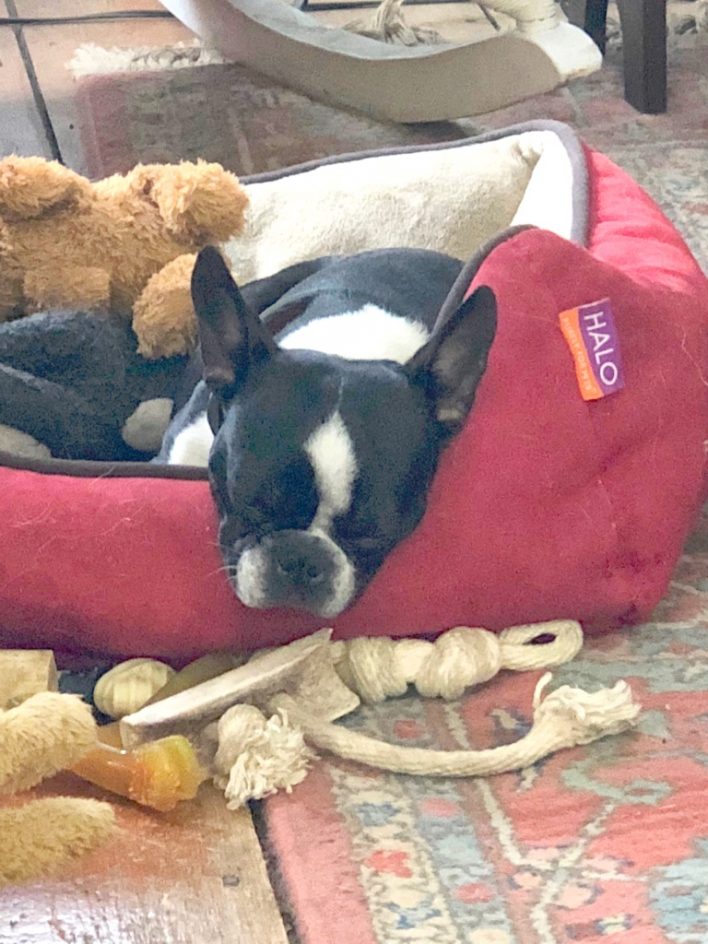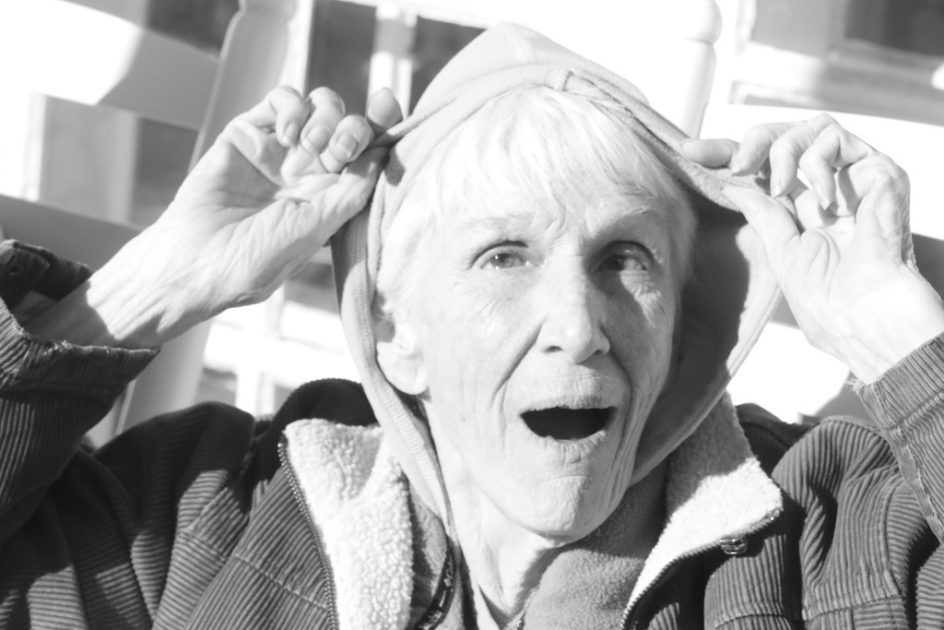
I’m coming to understand that giving unwanted advice is an addiction, like drug use, it isn’t malicious or consciously intrusive, some people can’t help it, and I am learning to be more tolerant. Nothing brings this out more than a sick dog, and that ought not surprise me, of all people.
I marvel at all of the messages of advice which begin, “I know you hate advice, but…,” here is some. Rational people who listen would not give me advice if they knew I hated it, addicted people can’t help it, it is good to see that. I can live with it. It is something some people just need to do.
Have I tried a feeding tube? Might it be pancreatitis, could it be thyroids? Have we tried antibiotics? Did I realize I could get a second opinion on Gus’s condition? Have I tried this drug, or that?
When I put up a photo of the flossing string I pulled out of Gus’s butt (he was raiding the trash basket in the bathroom daily) at least a half-dozen people e-mailed me to say it was obvious this was a tapeworm, not a flossing string, and that was the problem.
I guess it’s an ego thing, part of the problem is that people must think me, the author of a dozen books on dogs, incredibly stupid not to know the difference between a tape worm and a flossing string, or that I can get second opinions if I want them (I have more than one, plus the 1,000 amateurs online).
Maybe its ego. I was often called stupid in my younger life, I tend to be sensitive to it.
The real story is the American idea that any problem is soluble with enough money or science – we are often promised that by the makers and sellers of miracles, it is in our DNA, all the way back to the Rainmaker. Drink my potion, it will rain.
We believe we can cheat nature and disease and death by simply denying it or find that miracle medicine, or amazing doctor or shaman, or solution, if only we keep at it. We believe it shows great character to never quit.
Hospice work is a great teacher, of course, as is the Mansion work. There are very few miracles out there, and acceptance is a precious spiritual gift, it would make me even crazier than I am to turn the flossing string into a tapeworm, or search for the one specialist who has that five thousand dollar consultation and remedy that sometimes works.
Megaesophagus is also a great teacher of acceptance. Nobody beats it.
In this world, there are absolutely no limits to the things it might really be or the things we might try.
People want to believe in miracles that change the reality of life and make us feel more in control.
And thanks to social media, there is no shortage of people whose mission is to give advance, and to think they can save me or him. We saved Spot by giving him Ginger tea, their Uncle Harry’s dog found a miracle cure in Chinese herbs, would find a place where people sell potions and dog gruel, my sister Anne lost five or six dogs, she would be happy to speak with you.
On this, and for the sake of my dogs, I march to my own drum.
When I have a sick dog, I remind myself again and again that this is not about me, or what I would wish. It’s certainly not about you and your dog, or what you read on a mailing list, or what your Uncle Harry did. I don’t care to be rescued.
It’s about the dog and what he needs. And about figuring out what it is that I want for him, and holding my ground.
At such times, I believe, I find my center and my truth, and I embrace it.
What do I want for Gus?
I do not want him living with a feeding tube in his stomach several times a day for the rest of his life. To me that is just another kind of abuse, the kind of abuse that emerges – like no-kill shelters – when we stop thinking about what is best for the dog, and focus instead on what is best for us, and what makes us look good.
But no dog of mine will ever live in a crate for years so people can feel warm and sticky.
I don’t look good or feel good with Gus. I could not save him, and he is suffering. Perhaps my own hubris got in the way, I thought I might figure it out. There are no winners here.
And no dog of mine will live in suffering, gagging and vomiting much of his food, struggling with malnutrition and the intestinal disorder that comes from the disease and his inability to absorb food, and always being ravenous, even seconds after he has eaten a can of dog food.
I do not sleep well knowing that Gus is hungry every minute of his life, even as he eats enough food for a pony. That is not my idea of love or being humane.
Most dogs are stoic, they can confuse and mislead us, right up to death.
Rose, my wonderful border collie, was eager to chase her sheep even as cancer ravaged her brain, and hours before she died. I do not buy the fantasy that dogs can tell us when it’s time to go, they are not conscious of their options, they have no idea what death is.
That’s my job. My responsibility is to treat Gus to the extent I am able and can afford to, to do the best I can for as long as I can, and then do whatever is necessary to minimize his suffering and retain his quality of life. Every day I see the consequences of sick and older people kept alive beyond all empathy, compassion or reason while the outside world gives them nothing but pills and procedures.
I am so grateful I can spare my dogs that fate.
There could be a million things wrong with Gus. There could be a million possible cure and remedies. There are millions of people without much training who have all of the answers, and think that I have none.
I love Gus very much, and so does Maria, and nothing would make us happier than to keep him alive for years. It is so unnatural for a puppy to die before its time, that is a new kind of pain for me, and for Maria.
That is what I am focused on, that is my mission. Next to that concern is the one for Maria and for me. We must always protect our lives, our life together, our farm and animals, our creativity, our own emotional stability and our resources, they may have to last a long time.
And no one else can do this for us, or should. This is our trouble, and we don’t give our troubles away.
The world does not function waiting to earn what I want. It has its own story to tell.
Nothing will distract me from thinking about what I want for Gus, and what is good for him, and it is very simple. I do not want him to suffer or lose his life and great spirit as a playful, affectionate and much-loved dog. I call him the Little King, he is a major presence here.
When I can’t do those things, it is my responsibility to help him leave the world with dignity and comfort. I think that is what being centered means – I try to remember what is important.
What do I wish for him? Not me.

